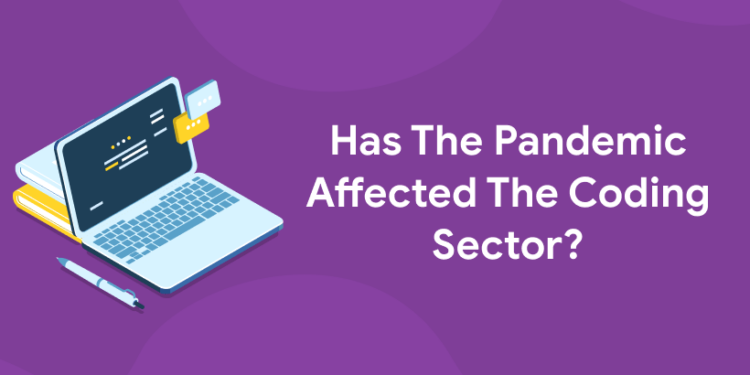Table of Contents
Coding has been around since the early 20th century, but it’s only recently that its necessity in our daily lives has become apparent to even those who don’t know anything about it. In fact, there are estimates that by 2020 the demand for coders will grow by over 200%. However, as the demand for coding increases and companies continue to open up positions in the field, we have yet to see just how deeply this new world pandemic has affected the coding sector. If you’re curious about how the pandemic has affected coding so far, read on below and get some answers!
Get the latest updates on web development in the Entri app
What Happened During The Outbreak?
Late in 2009, a novel influenza A virus was identified as causing severe respiratory illness in humans. Due to previous exposure to a related swine influenza virus, the human population had some immunity against H1N1, which is why it didn’t result in more deaths. However, that’s not necessarily good news: There was no cure for H1N1 at first and vaccines took a while to develop (and still aren’t perfect). Antiviral medications were also slow to roll out because it takes time to synthesize them once they’re identified. At first, there weren’t any antivirals available and nearly everyone who got sick had no choice but to wait it out until their immune systems were able to fight off the infection on their own.
Did The Outbreak Affect Coding Jobs?
1: Which of the following data structures allows elements to be added and removed in a Last-In, First-Out (LIFO) order?
Many people working in technology left their jobs during or after becoming infected. They abandoned their daily responsibilities to spend all day, every day fighting off the disease. Those who remained at work took on more than one role and made other sacrifices. Companies had to adjust and reorganize without key players, often creating new positions to fill needs.
To know more about android development through the Entri app
How Did Companies Cope With The Crisis?
The U.S. National Institute of Health (NIH) issued a report that told organizations to prepare for an Ebola outbreak and how to handle it when it happens. The NIH is a nonprofit group under America’s Department of Health and Human Services, which is also responsible for regulating biotech research in the country. The NIH ordered organizations to create detailed plans addressing best practices such as training employees on how to treat those infected with Ebola and on the proper use of protective equipment like gloves, masks, face shields, and bodysuits. It also included instructions on isolating patients from other people when transporting them through hospitals or airports, washing hands regularly, and disposing properly of used equipment like needles.
Were There Any Attempts To Fight Back Against The Pandemic?
There have been no attempts to fight back against Pandemic by any of its victims, though there are indications that they had made efforts at such an attempt, as in 1997 a program titled Ridicule was initiated by Yahoo! employees to attack and slow down incoming traffic to their website. Further attempts included advertising campaigns on television networks, posters, and pamphlets distributed worldwide (but still remained uncredited). These efforts were considered a success until 2001 when it was discovered that all of these campaigns originated from one source: The Cyberbullying Campaign Center, also known as Planned Parenthood.
Was It Worth Fighting Back Against Pandemic?
The cyber terrorism that recently struck San Francisco was unprecedented in many ways, but one of its most startling features was how it specifically targeted developers. After weeks of preparation and testing, a group calling itself Vultures unleashed a sophisticated worm that quickly spread through major Internet companies, destroying their infrastructure and causing widespread financial loss. The Vultures have not been heard since their attack and few details about them are known; however, researchers at MIT were able to confirm with high confidence that Pandemic. The cyber terrorism that recently struck San Francisco was unprecedented in many ways, but one of its most startling features was how it specifically targeted developers.
What Did Other Countries Do In Response To The Pandemic?
This one is a little tricky. Pandemic is what’s known as a digital virus, which spreads by jumping from computer to computer and encrypting files (it makes them unreadable). It didn’t kill anyone—but it did have real-world consequences. After businesses and individuals lost access to their files, they had to deal with those consequences (potentially including financial losses), whether or not they were physically harmed by it themselves. If you want to look at cases of other viruses like SARS or Ebola, think about how those scenarios compare. How much time and money was lost because of people being too afraid to go out? Because of people taking more sick days than usual?
The Aftermath Of Pandemic
How Has It Affected Coding? As of yet, researchers have been unable to pinpoint why it spread so quickly, so rapidly, and so devastatingly across global data networks. Although many have suggested that it is due to an advanced form of modern computer virus–and while many are quick to blame hackers or terrorism–few credible sources can claim with any authority what happened during those first three months following the Pandemic. Few who were in working in IT at that time are still alive today to say anything. Perhaps it was sheer luck (good or bad) that those select few managed to survive; perhaps there is a more complicated answer than we currently know about for reasons relating directly or indirectly to their survival. If you are eagerly waiting to learn any coding language, you can try the Entri app. Here we will provide a structural and easy study plan. If you have no software background, we will help you to learn new skills. You can download the Entri app from the play store and enroll in the specified course.











